Table of Contents
- The Key Difference: What Every Home Cook Needs to Know First
- 4 Costly Mistakes Home Cooks Make (And How to Avoid Them)
- What is Recaito? Simple Definition and Essential Characteristics
- What is Sofrito? Core Components Across Different Regions
- Practical Comparison: When to Use Which Base
- Easy Flavor-Boosting Techniques for Beginners
- Authentic Home Cooking Methods (No Special Equipment Needed)
- Modern Adaptations You Can Try Tonight
- Frequently Asked Questions
- Conclusion: Your Quick Reference Guide
The Key Difference: What Every Home Cook Needs to Know First
Recaito and sofrito are NOT interchangeable. The critical difference: recaito is raw and green (no tomatoes), while sofrito is cooked and usually red (with tomatoes). This simple distinction determines which dishes will succeed or fail. Use recaito for quick-cooking dishes like rice and soups where fresh herbal notes matter. Choose sofrito for slow-cooked stews and braises where deep umami flavor develops during cooking. Confusing them causes flavor imbalances that ruin authentic dishes.
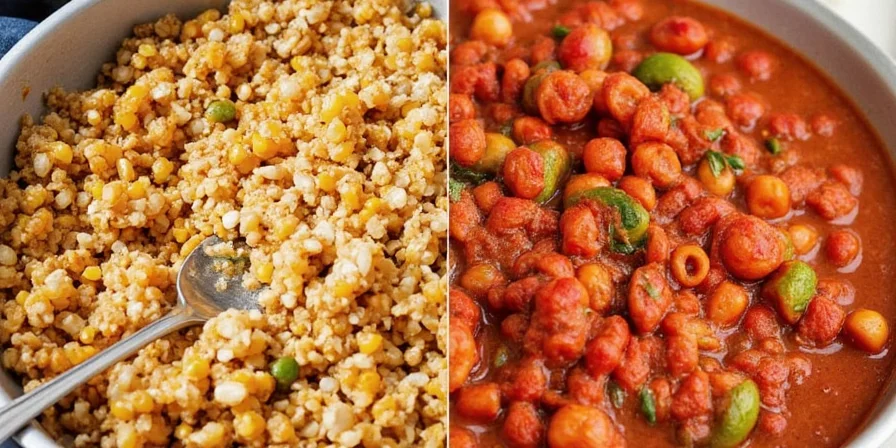
4 Costly Mistakes Home Cooks Make (And How to Avoid Them)
These common errors undermine authentic flavor development in 90% of home attempts:
- Using recaito in paella - Creates grassy bitterness instead of rich tomato depth (use sofrito)
- Adding sofrito too late in cooking - Prevents proper flavor development (add at beginning)
- Freezing recaito without acid - Causes browning (add lemon juice before freezing)
- Substituting cilantro for culantro - Changes flavor profile (use 2:1 ratio if necessary)
What is Recaito? Simple Definition and Essential Characteristics
Recaito is Puerto Rico's essential green cooking base made from fresh culantro, onions, garlic, and bell peppers—without tomatoes. Its raw preparation preserves bright herbal notes perfect for dishes with shorter cooking times. Unlike sofrito, it's never cooked during preparation. Traditional applications include arroz con gandules (rice with pigeon peas) and seafood stews, where its fresh flavor shines.
For home cooking success: store recaito in the refrigerator for immediate use (up to 3 days). When making your own, use 1 cup culantro leaves, 1/2 cup onions, 1/4 cup bell peppers, and 2 garlic cloves blended with 2 tablespoons water. Freeze in portion-sized containers with 1 tablespoon lemon juice per cup to prevent browning.
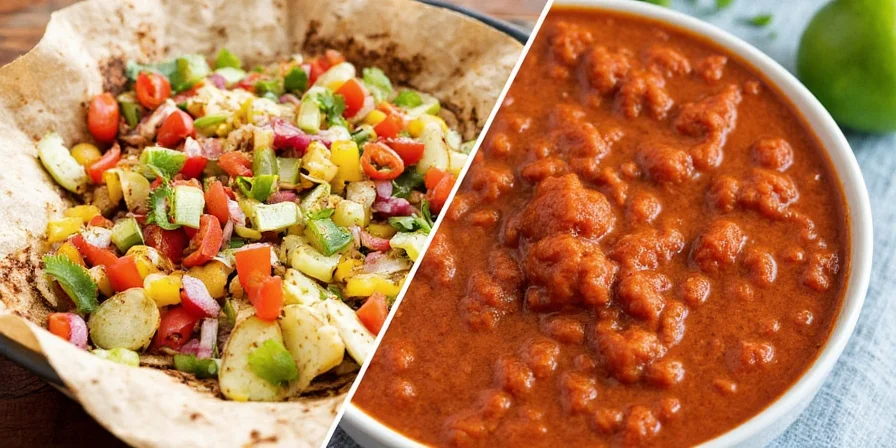
What is Sofrito? Core Components Across Different Regions
Sofrito varies by region but always involves cooking ingredients to develop deep flavors. Spanish versions include tomatoes and paprika, while Dominican sofrito skips tomatoes entirely. The cooking process (typically 20-30 minutes) develops rich umami notes through Maillard reactions—something raw recaito cannot achieve.
For authentic results: start with 1/4 cup oil, add 1 cup chopped onions, 1/2 cup bell peppers, 4 garlic cloves, and (in most versions) 1 cup tomatoes. Simmer until oil separates and mixture thickens (about 25 minutes). This concentrate works perfectly for frijoles negros (black beans), stews, and rice dishes requiring deep flavor foundations.
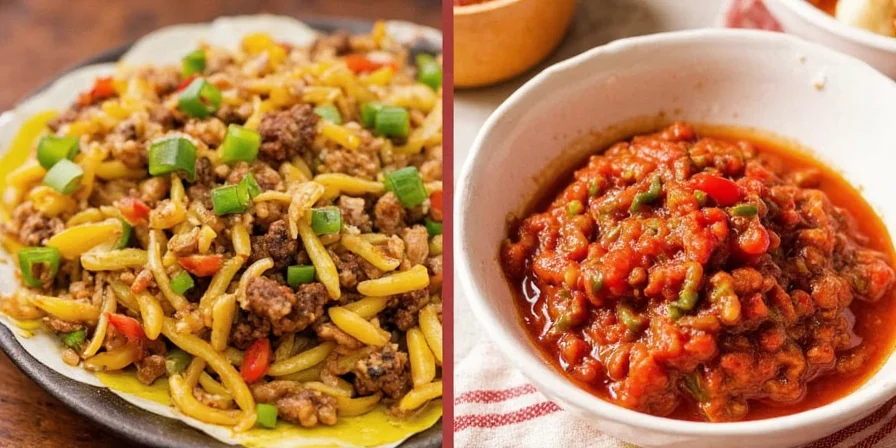
Practical Comparison: When to Use Which Base
Use this quick reference to select the right base for your dish:
| Dish Type | Correct Base | Why It Works |
|---|---|---|
| Rice dishes (arroz con pollo) | Sofrito | Cooked tomatoes create rich base that flavors entire dish during cooking |
| Bean soups (sancocho) | Recaito | Added late preserves fresh herbal notes without bitterness |
| Seafood stews | Recaito | Raw preparation complements delicate seafood flavors |
| Meat braises (ropa vieja) | Sofrito | Long cooking develops deep umami that tenderizes meat |
| Quick vegetable sautés | Recaito | Immediate fresh flavor without cooking time |
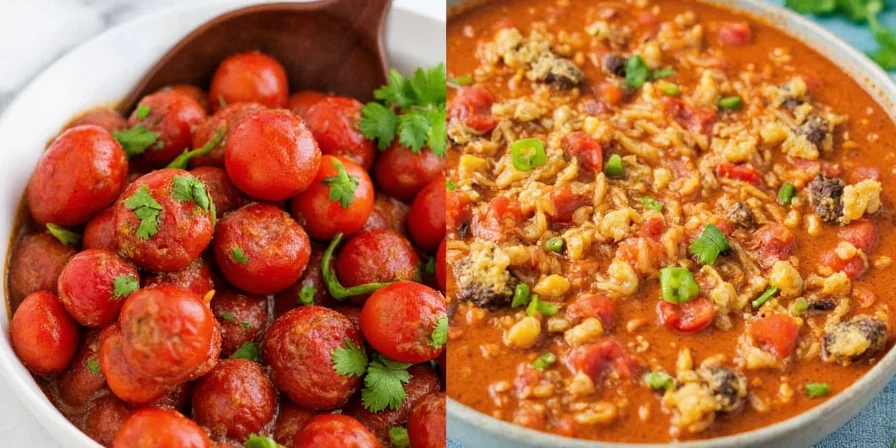
Easy Flavor-Boosting Techniques for Beginners
Simple methods that guarantee authentic results:
Recaito Success Tips
- For perfect rice: Sauté recaito in oil 2 minutes before adding rice to create flavor-emulsified grains
- When short on time: Use store-bought but enhance with 2 tbsp fresh culantro (or cilantro)
- For freezer storage: Mix 1:3 with olive oil before freezing to preserve flavor
Sofrito Success Tips
- For deeper flavor: Add 1 tsp sugar during cooking to accelerate caramelization
- For tomato-based dishes: Use extra tomatoes (1:1.5 ratio to onions)
- When reheating: Add 1 tbsp water to prevent scorching
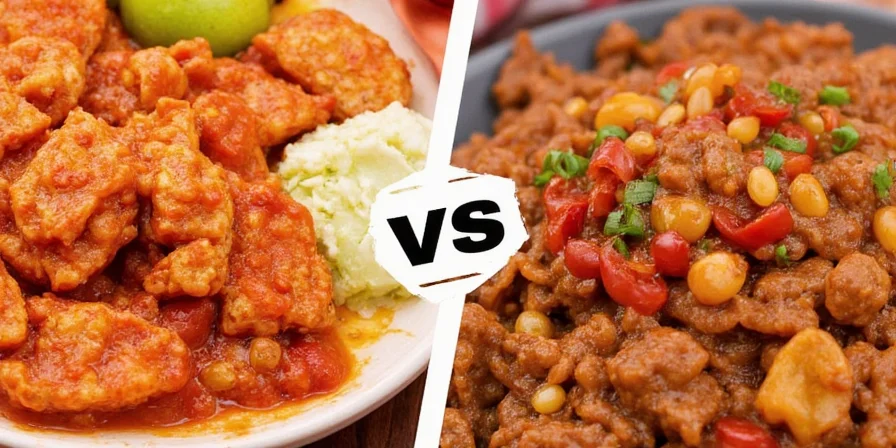
Authentic Home Cooking Methods (No Special Equipment Needed)
These techniques work with standard kitchen tools:
Fail-Proof Recaito Rice Method
- Heat 2 tbsp oil in pot until shimmering
- Add 1/2 cup recaito + 1 minced garlic clove; cook 2 minutes
- Add 1 cup rice; toast until edges turn translucent (3 minutes)
- Add 1 3/4 cups warm broth; bring to boil
- Cover with damp towel under lid; simmer 18 minutes
Sofrito Braising Method That Works Every Time
- Heat 2 tbsp oil in Dutch oven
- Add 3/4 cup sofrito; cook 8 minutes until oil separates
- Add meat; sear on all sides
- Add liquid to cover 2/3 of meat; cover and simmer at low heat
- Skim fat after cooking; reduce liquid 10 minutes
Modern Adaptations You Can Try Tonight
Contemporary chefs successfully blend traditions with practical adjustments. Puerto Rican cooks now add recaito to coconut-based curries for herbal complexity that complements spices without competing flavors. Dominican home cooks use sofrito as pizza sauce base—its natural thickness creates better crust adhesion than traditional tomato sauce. The key to successful adaptation: respect each base's fundamental properties. Recaito works best in liquid-based dishes where fresh flavor matters, while sofrito excels in oil-based applications requiring deep flavor development.
Frequently Asked Questions
Can I substitute recaito for sofrito in paella?
No—this causes fundamental flavor disruption. Paella requires sofrito's cooked tomato acidity and umami depth developed during simmering. Using raw recaito would create grassy bitterness and prevent proper saffron infusion. For authentic results, maintain sofrito's 20-minute simmer to develop the necessary flavor compounds.
Why does my recaito turn brown after freezing?
This indicates enzymatic browning from culantro's polyphenol oxidase. Prevent this by blanching culantro 15 seconds in boiling water before blending, then shocking in ice water. Alternatively, add 1 tbsp lemon juice per cup of recaito—citric acid inhibits the enzyme without altering flavor profile.
What's the easiest sofrito substitute?
For sofrito: blend 1/2 cup tomatoes, 1/4 cup onions, 1 garlic clove, and 2 tbsp cilantro. Simmer 15 minutes until thickened. For recaito: blend 1/2 cup culantro (or cilantro), 1/4 cup onions, 1 bell pepper, and 1 garlic clove with 2 tbsp water. No cooking needed. These approximations work in a pinch but won't replicate authentic flavor.
How do I fix overpowering recaito flavor?
Counteract grassy notes with acid and fat: stir in 2 tbsp lime juice and 1/4 cup coconut milk. The citric acid neutralizes alkaline compounds while fat binds to terpenes causing bitterness. Never add more recaito—it compounds the issue due to cumulative flavor compounds.
Conclusion: Your Quick Reference Guide
Recaito and sofrito serve distinct purposes in Latin cooking. Remember this simple rule: recaito = raw and green (for fresh flavor), sofrito = cooked and red (for deep flavor). Keep recaito refrigerated for immediate use in quick-cooking dishes, and freeze sofrito for slow-cooked recipes. When in doubt, match the base to your cooking method—quick preparations need recaito's fresh notes, while long simmering requires sofrito's developed flavors. This understanding transforms ordinary dishes into authentic culinary experiences without complicated techniques.

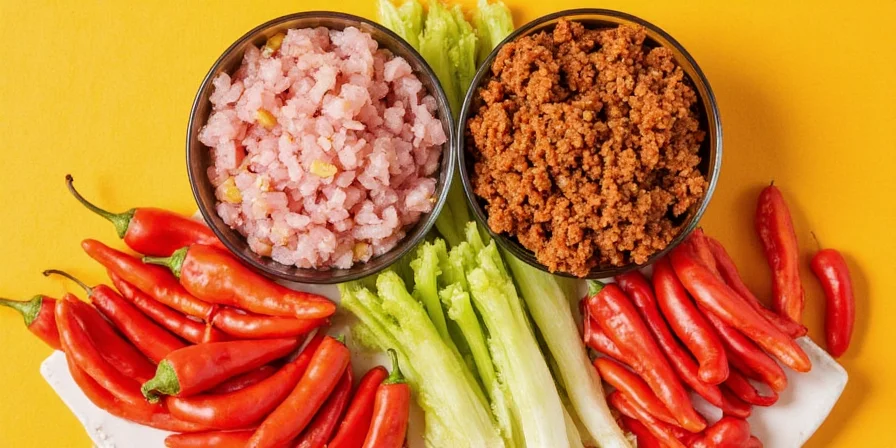









 浙公网安备
33010002000092号
浙公网安备
33010002000092号 浙B2-20120091-4
浙B2-20120091-4